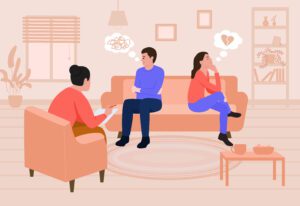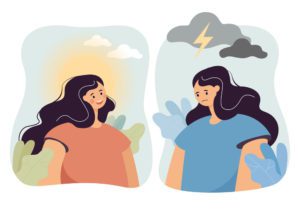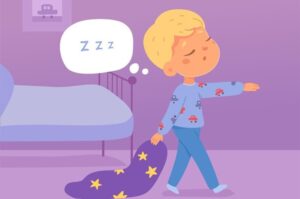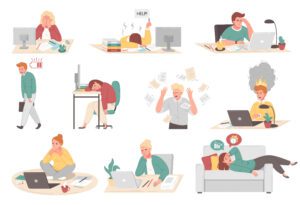10 Signs You May Have Anxiety
This article has been researched and written by Nayla Daou. AI has not been used in producing this article.
Anxiety is a normal and natural human response to stress, danger, or uncertainty. However, when anxiety becomes excessive, it can interfere with daily life and affect one’s ability to function normally. Many people experience anxiety from time to time, but for some, it can become a chronic condition that requires treatment. Here are ten signs that you may be experiencing anxiety.
1. Excessive Worry
One of the most common signs of anxiety is excessive worry. If you find yourself worrying about everyday things, even things that are not in your control, you may be experiencing anxiety. This can include worrying about finances, health, relationships, work, or anything else that causes you stress. The worry can become obsessive and interfere with your ability to concentrate and enjoy life.
2. Restlessness and difficulty sleeping
Feeling restless, on edge, or unable to relax is another sign of anxiety. You may feel like you’re constantly on alert or have a sense of impending doom. Restlessness can lead to difficulty sleeping or concentrating, as your mind is always working, worrying, thinking. You may also find yourself fidgeting, pacing, or tapping your feet or fingers.
3.Irrational Fears and Phobias
Everyone has fears, but those with anxiety often experience irrational fears or phobias, disproportionate to the actual threat. This can manifest as a fear of flying, spiders, or social situations, leading to avoidance behaviors that interfere with daily activities. The anxiety that accompanies phobias can be debilitating, affecting one’s quality of life.
4. Physical Symptoms
Anxiety can cause a range of physical symptoms, such as muscle tension, headaches, nausea, and chest pain. This tension often leads to discomfort, including tightness in the neck, back, and shoulders, and can contribute to other issues like jaw pain, teeth grinding, or digestive problems like acid reflux and diarrhea. With the right anxiety treatment, you can learn to manage your symptoms and lead a fulfilling life.
5. Panic Attacks
Panic attacks are sudden and intense episodes of fear or terror, often accompanied by physical symptoms such as rapid heartbeat, sweating, shaking, and difficulty breathing. If you experience frequent panic attacks, you may have an anxiety disorder. Panic attacks can be terrifying and can lead to avoidance of certain situations or activities that trigger them.
6. Avoidance
If you find yourself avoiding certain situations or activities because they make you anxious, this could be a sign of anxiety. For example, you may avoid social situations or public speaking because you’re afraid of being judged or criticized. Avoidance can lead to isolation and can interfere with your ability to perform well at work or school.
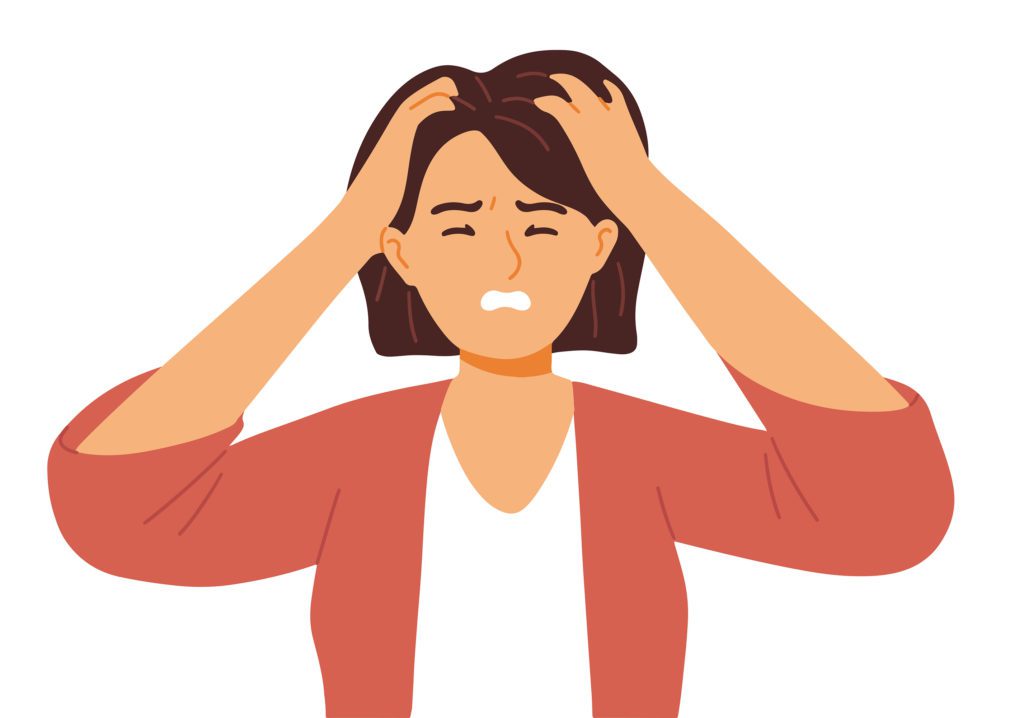
7. Mood Swings and Irritability
Individuals with anxiety may experience frequent mood swings, becoming easily irritated or upset by things that wouldn’t normally bother them. This irritability can interfere with relationships and daily functioning.
8. Obsessive Thoughts
If you find yourself obsessing over certain thoughts or worries, this could be a sign of anxiety. For example, if you constantly worry about your health, your job, or your relationships, you may have generalized anxiety disorder. Obsessive thoughts can be distressing and can interfere with your ability to concentrate and enjoy life.
9. Phobias
Phobias are extreme and irrational fears of specific objects, situations, or activities. If you have a phobia, you may go to great lengths to avoid the object of your fear, even if it means disrupting your daily life. For example, if you have a fear of flying, you may avoid traveling by plane, which can limit your ability to visit loved ones or take vacations.
10. Self-Doubt and Low Self-Esteem
Feelings of inadequacy, low self-esteem, and self-doubt are common in individuals with anxiety. They often feel as though they’re constantly failing or making mistakes, which only heightens their anxiety. This cycle can leave individuals feeling isolated and unworthy.
Anxiety Treatment with ClearMinds
At ClearMinds, we understand that daily life can be overwhelming and challenging, leading to stress and disappointment. Our team of mental health professionals committed to empowering individuals to lead happy and fulfilling lives. If you or someone you know is struggling with anxiety, our qualified therapists can help you find a life free from its grip. We provide a safe and welcoming environment where our clients can express themselves freely without fear of judgment or criticism. You don’t have to face anxiety alone. Reach out to schedule your consultation today.
How Psychoeducational Assessments Help Shape Better Learning Plans in School
No two children are the same. Every child brings a unique mix of strengths, challenges, and ways of …
Can Relationship Counseling Work for Toxic Relationships?
Relationships can be complicated, emotional, and at times, painful. While every couple experiences ups and downs, some relationships …
10 Signs You May Have Anxiety
Anxiety is a normal and natural human response to stress, danger, or uncertainty. However, when anxiety becomes excessive, it can …
Child Sleepwalking and Talking: What You Need to Know
Childhood is a time of rapid development, filled with new experiences—and sometimes, surprising nighttime behaviors.
Questions a Child Psychologist Might Ask
When preparing for your child’s first appointment with a psychologist, it’s natural to feel curious—or even a little anxious—about what …
55 Love Questions for Couples to Deepen Your Relationship
In any relationship, communication is key. Whether you’re just starting out or have been together for years, asking meaningful
Stress vs. Anxiety vs. Burnout: How to Recognize the Difference
In today’s fast-paced world, understanding the differences between stress, anxiety, and burnout is crucial for …
Relocation Depression: Definition and Ways to Cope
Relocation depression, also known as moving depression, is a form of situational depression that arises from the stress …
How to Help Your Child with Anxiety Through Divorce
Divorce is a significant change that affects every member of a family. For children, the uncertainty and adjustments …
Depression vs Sadness: Understanding the Difference
While often used interchangeably, the terms “sadness” and “depression” represent distinct emotional states, each with …


